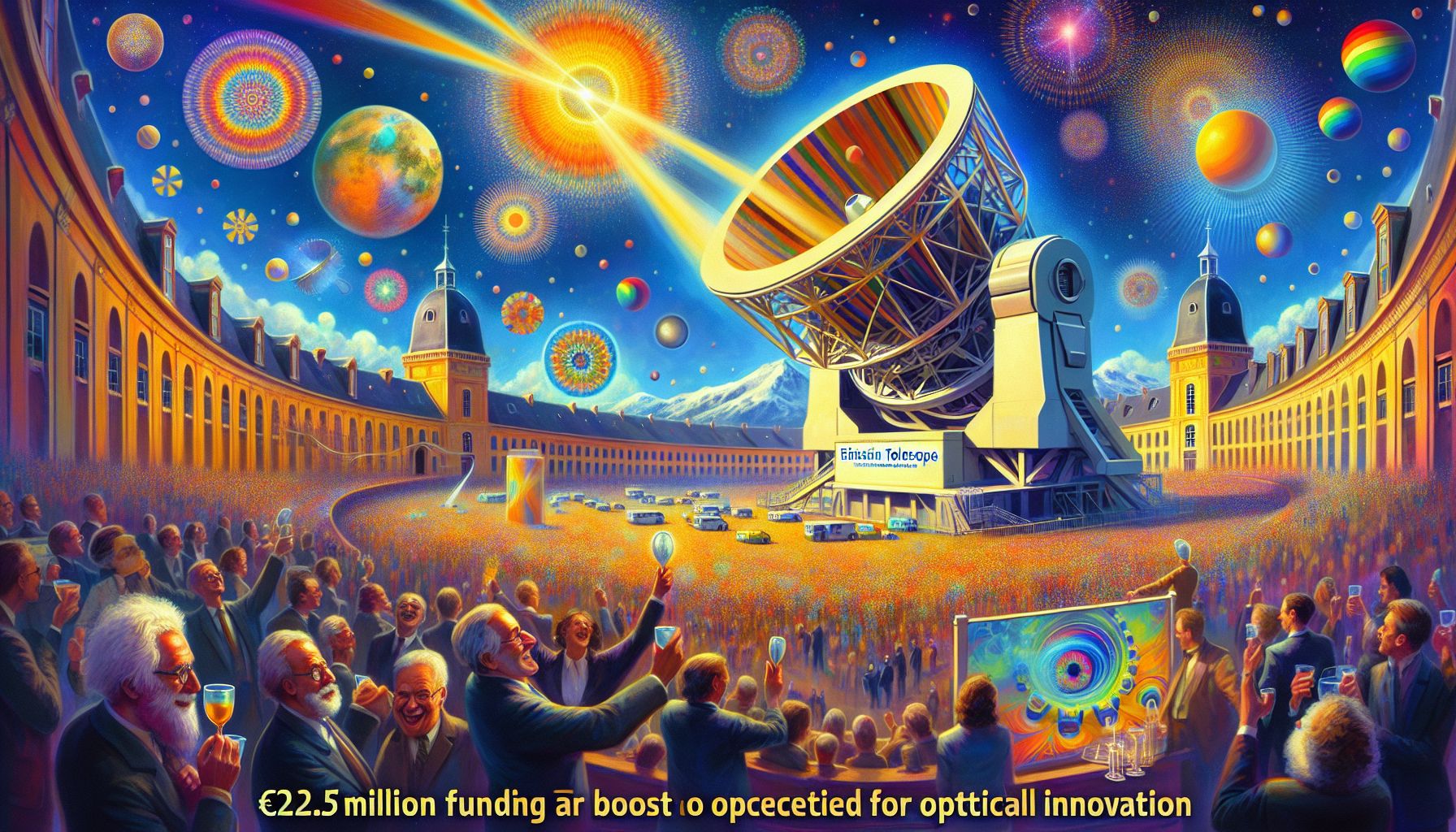Einstein Telescope's €2.5 Million Funding Boost for Optical Innovation

Limburg, Wednesday, 11 September 2024.
The Einstein Telescope project opens its third R&D call, offering €2.5 million to high-tech companies for optical technology development. This initiative aims to accelerate innovation for the groundbreaking gravitational wave observatory, strengthening the Netherlands’ bid to host the facility.
A New Frontier in Gravitational Wave Detection
The Einstein Telescope (ET) represents the next generation of gravitational wave observatories, designed to achieve unprecedented sensitivity in detecting cosmic events. Situated 250 to 300 meters underground, the observatory will feature three corridors, each extending 10 kilometers, making it the most advanced facility of its kind in Europe[1]. This ambitious project aims to deepen our understanding of the universe by detecting gravitational waves with far greater precision than ever before, building on the groundbreaking first detection of gravitational waves in 2016[2].
Optical Innovations: The Heart of ET
Optical systems are critical to the Einstein Telescope’s mission. The current funding call focuses on the development and interferometric testing of large silicon mirrors, which are essential for measuring minuscule relative length differences between the telescope’s kilometers-long laser interferometer arms[1]. These mirrors need to operate at extremely low temperatures, between 10 and 20 Kelvin, to reduce thermal noise and enhance measurement accuracy[1].
Prominent Figures and Institutions
The call for R&D proposals is coordinated by LIOF, an organization that aims to foster economic growth and innovation in the Limburg region of the Netherlands. Jorg van der Meij, the program manager at LIOF, encourages high-tech companies and knowledge institutions specializing in optical systems to apply[1]. This initiative is part of a broader collaboration that includes Leiden University, Onnes Technologies, SRON, Nikhef, JPE, Piak Electronic Design, Delft Circuits, and Magnetic Innovations, all working together to advance the ET project[3].
Application Process and Future Prospects
Interested companies have until 12 September 2024 to submit their proposals, which will be evaluated by an independent advisory group[1]. This funding opportunity not only supports the development of cutting-edge optical technologies but also strengthens the Netherlands’ candidature to host the Einstein Telescope, positioning the country as a leader in gravitational wave research[1]. The collaborative effort aims to develop technologies that can also be applied in other scientific and industrial fields, thereby enhancing the country’s future earning potential[1].

